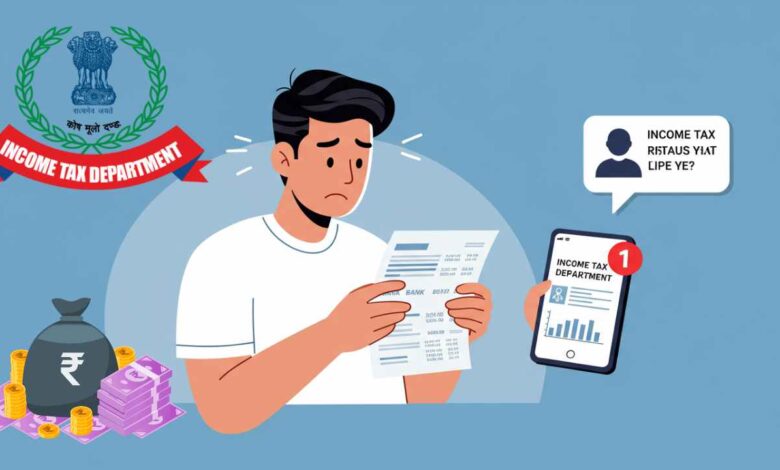Income Tax Notice: Is Your Bank Account Under the Scanner? The Government is Tracking These 7 Major Transactions

Income Tax Notice: Are you aware that the Income Tax Department is keeping a close watch on your high-value cash transactions? To curb black money and prevent tax evasion, the Government of India has implemented rules that require financial institutions to report your significant transactions directly to the tax authorities. Let’s dive into the details.
What is the Statement of Financial Transaction (SFT)?
Under Section 285BA of the Income Tax Act, 1961, it is mandatory for specified entities like banks, mutual funds, registrars, and bond issuers to report high-value transactions to the Income Tax Department. This information is submitted through ‘Form 61A’ and becomes a part of your Annual Information Statement (AIS). This system allows the tax department to easily monitor your financial activities.
Which Transactions Are Being Monitored?
Here is a list of transactions that are under the special scrutiny of the Income Tax Department:
- Cash Deposits in Savings Account: If you deposit a total of ₹10 lakh or more in cash in one or more of your savings accounts in a financial year, the bank is obligated to report this to the tax department.
- Cash Deposits or Withdrawals in Current Account: If cash deposits or withdrawals in your current account amount to a total of ₹50 lakh or more in a financial year, this information is also sent to the tax authorities.
- Fixed Deposits (FD): If you make cash deposits in one or more fixed deposits totaling ₹10 lakh or more in a year, the bank will report this transaction.
- Credit Card Bill Payments: If you pay your credit card bill with ₹1 lakh or more in cash during a financial year, or make payments of ₹10 lakh or more through any other mode, this activity comes to the attention of the Income Tax Department.
- Property Transactions: If you buy or sell any immovable property valued at ₹30 lakh or more, the property registrar will inform the tax department about the transaction.
- Investments in Shares, Bonds, and Mutual Funds: If you invest a total of ₹10 lakh or more in shares, debentures, bonds, or mutual funds in a financial year, this information is also reported.
- Sale/Purchase of Foreign Currency: If you buy or sell foreign currency worth ₹10 lakh or more in a year, this information is shared with the tax department.
What Should You Do?
The purpose of these rules is not to intimidate you but to bring transparency to the financial system. As a responsible citizen, you should keep the following points in mind:
- Provide Accurate Information: When filing your Income Tax Return (ITR), declare all sources of income and high-value transactions correctly.
- Use Your PAN: Always quote your PAN for any major transaction.
- Check Your AIS: Regularly review your Form 26AS and AIS. If you find any discrepancies, you can get them rectified quickly.
Stay aware and comply with the regulations. This will help you avoid any notices from the Income Tax Department and save you from potential penalties.

